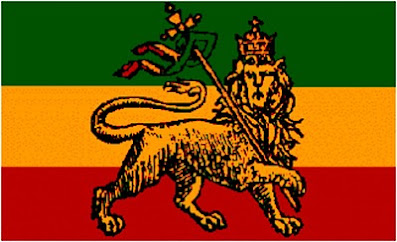Evolution
The roots-reggae evolved from the early reggae, turn on the rock steady decline. Compared to the early reggae is the slowest pace of roots-reggae. The studio previously popular effects such as delay and reverb phaser occur mainly in the background, on the contrary, the texts are important. They often contain praise of God (Jah Rastafari) and Haile Selassie.Repeating units are also poverty and resistance to oppression by the government. The critical attitude of roots reggae, especially Africa and won the South America, and of course in Jamaica, a political significance.
As the first Reggae album in general is Bob Marley and The Wailers album "Catch a Fire" in 1973, where he previously roots reggae, among others, were the Abyssinians.
The international breakthrough of music can help, but a white man: Eric Clapton, the "I Shot the Sheriff" by Marley second LP Burnin '(1973) Covert and thus achieved in 1974 with a U.S. Top 5 hit in Germany and England. In the following years, from the reggae superstar Bob Marley.
As the result of creative roots reggae may apply for the years 1976 and 1977.
There appears to include the albums of the period: "Legalize It" by former colleagues Marley, Peter Tosh, "War Ina Babylon" by Max Romeo (both 1976), "Two Sevens Clash" by Culture and "Exodus" by Bob Marley himself (both 1977).
Other important artists of the reggae roots are Johnny Clarke, Dennis Brown, Gregory Isaacs, Horace Andy, Barrington Levy, Third World, and Justin Hinds.
As producers should Lee Perry and Coxsone Dodd called. The roots-reggae boom fizzled in the four years after the death of Bob Marley, but probably mainly due to technology development studio, gradually again.
Roots reggae is an important part of Jamaican culture, and although it was there long supplanted in popularity of reggae from other directions (such as Dance Hall), he nevertheless conquered his niche world.
As producers should Lee Perry and Coxsone Dodd called. The roots-reggae boom fizzled in the four years after the death of Bob Marley, but probably mainly due to technology development studio, gradually again.
Roots reggae is an important part of Jamaican culture, and although it was there long supplanted in popularity of reggae from other directions (such as Dance Hall), he nevertheless conquered his niche world.
